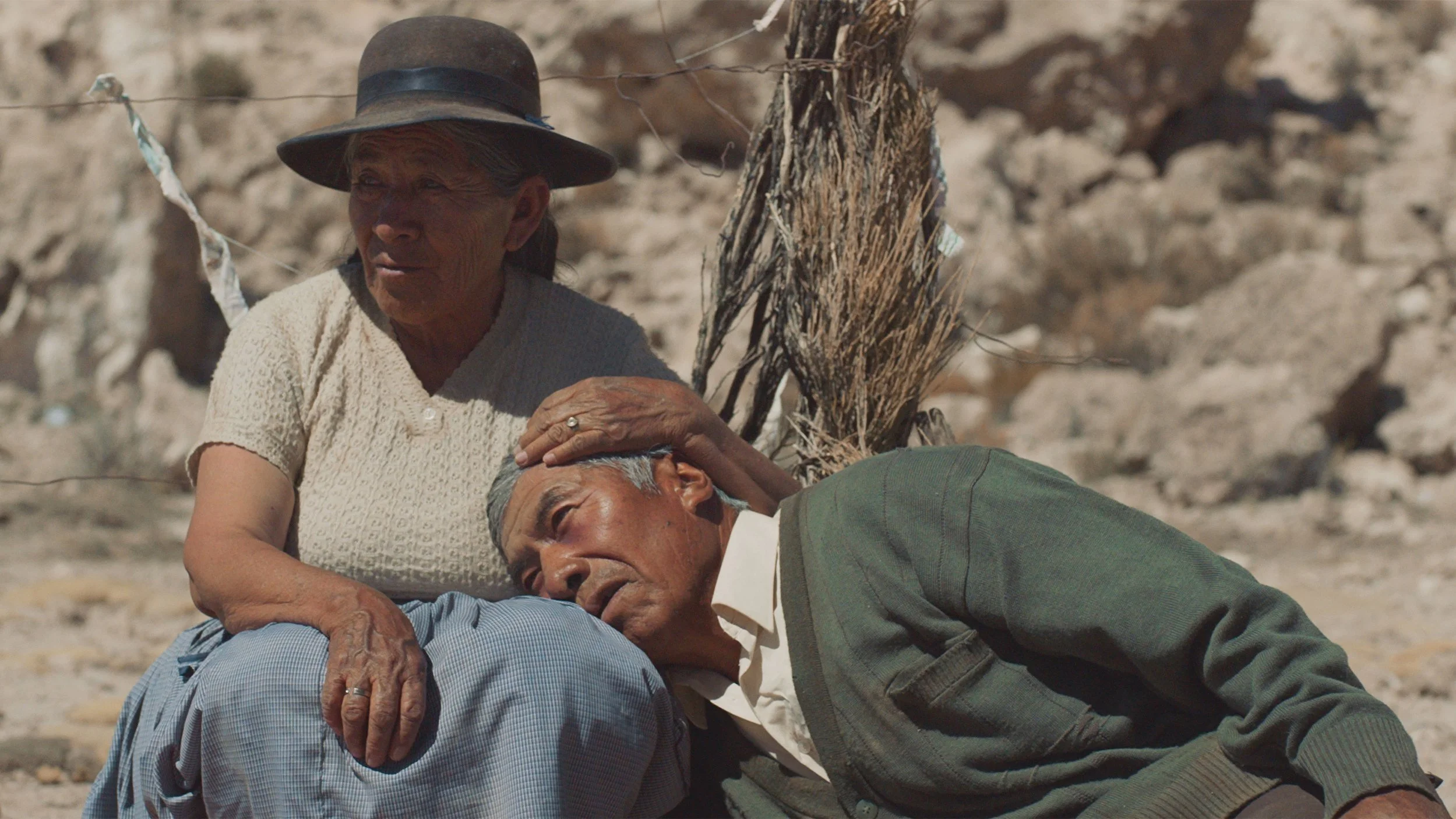Utama
A stunning debut from Bolivia displays a rare skill both in its casting and direction.
With his very first feature film, the Bolivian director Alejandro Loayza Grisi shows a talent that can only be described as masterly. Indeed, if only the screenplay (which is also his work) was as satisfactory as his filmmaking, Utama would be a masterpiece. For at least two-thirds of its length the film is virtually perfect in every respect, an achievement all the more remarkable because the material would present challenges to any filmmaker, even a thoroughly experienced one.
Utama, which translates as ‘Our Home’, is set in that region of Bolivia which is some 12,000 ft. above sea level and is known as the Altiplano. It is there that an elderly couple, Virginio and Sisa, live out their lives farming llamas. Like most of the cast, the actors who take these leading roles are non-professionals, José Calcina and Luisa Quispe, but for the role of their grandson, Clever, the actor chosen, Santos Choque, is a professional. These choices prove to be inspired casting for a film in which these three characters dominate. The old couple belong to the Quechua peoples and speak that language whereas Clever now in his twenties is living in La Paz and visits them as his father’s messenger hoping that they will move to the city. Not only would that help the obvious health problems that Virginio has but there is the major concern that climate change is having a drastic effect in the Antiplano as the land dries up for lack of rain thus making it extremely difficult for the couple to sustain their way of life.
At 87 minutes, Utama is not a particularly long work but it is apparent that the story being told is relatively short on plot development. Only its resolution involves strong drama and for much of the time the film simply sets out to do two things: to show the couple’s daily life in these increasingly difficult conditions and to explore the way in which their devotion to this traditional life-style conflicts with the views of Clever whose outlook has been shaped by city life rather than by any ancestral traditions. In drawing us into this unfamiliar world, Grisi has the advantage of first-class colour photography in ’Scope by Bárbara Álvarez but no less important is his sense of how best to present the material given its lack of big dramatic gestures. His solution is to present a series of mainly short scenes and to give variety by moving back-and-forth between exterior footage (scenes that set the couple’s daily lives firmly within the landscape) and interior scenes which capture beautifully the intimacy of their relationship even if Virginio, being a patrician figure, can be grumpy and brusque in his demands.
I described the casting as inspired and that is no exaggeration. Calcina and Quispe may be non-professionals but they have the ability to appear totally natural on camera and the fact that in real-life they have been married for nearly fifty years enables them to express quite wonderfully the sense of a couple who have grown old together. Equally adroit was the decision to cast Santos Choque since, although he is not a professional actor with a style that feels actorly, his experience yet brings with it an awareness of a player with a different approach and that matches perfectly the fact that Clever with his urban background has a manner and an attitude that Virginio in particular finds alien.
After about an hour this beautifully shot but entirely realistic work briefly takes on a different register as landscape shots are accompanied by a singing voice. Thereafter, Utama reverts to its former style, but then in its last third one waits in vain for any clear indication of what Grisi wants us to feel about Virginio. There is, of course, no doubt about the film’s deep concern on the subject of climate change for that is inherent in the story. But on the personal level we are left with no clear indication as to what we are meant to make of Virginio. To what extent is he to be admired for his obstinacy in refusing to move away as he clings to the old ways? If he is stubborn in that respect, is he unfair to his wife? It could well be that his stand should be seen as that of a man who can in part be approved, even admired, and in part criticised, but Utama, rather than embracing any such complexity seems to sidestep it. To that extent this is a film that left me disappointed. But, nevertheless, Utama is a memorable achievement and one not without greatness, even if in my eyes that is not fully sustained in its later stages.
MANSEL STIMPSON
Cast: José Calcina, Luisa Quispe, Santos Choque, Félix Ticona, Candelaria Quispe, Placide Ali, René Calcina, René Pérez, Jorge Yucra Nogales, Juan Carlos Calcina.
Dir Alejandro Loayza Grisi, Pro Santiago Loayza Grisi and Federico Moreira, Screenplay Alejandro Loayza, Ph Bárbara Alvarez, Art Dir Valeria Wilde, Ed Fernando Epstein, Music Cergio Prudencio.
Alma Films-Conic.
87 mins. Bolivia/Uruguay/France. 2022. UK Rel: 25 November 2022. Cert. 12A.


